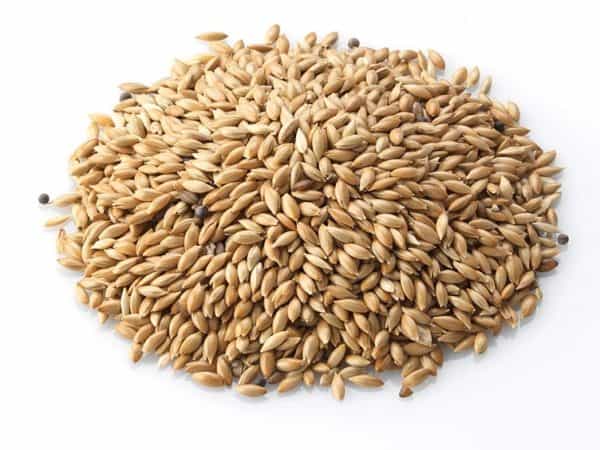
 Get ready for the new wonder food that’s about to sweep the nation: canary seeds have now been approved for human consumption by both Health Canada and the U.S. Food and Drug Administration. Previously grown mainly as bird seed (yet also consumed by a few cultures around the world), canary seed is high in protein and gluten free.
Get ready for the new wonder food that’s about to sweep the nation: canary seeds have now been approved for human consumption by both Health Canada and the U.S. Food and Drug Administration. Previously grown mainly as bird seed (yet also consumed by a few cultures around the world), canary seed is high in protein and gluten free.
But traditionally, the canary seed’s hull has been covered with fine silica hairs which, according to health authorities, made it unsuitable for human diets (studies have linked their consumption with esophageal cancer).
Now, the Canaryseed Development Commission of Saskatchewan (CDCS) has spearheaded the recognition of a new hairless variety of the canary seed, one that was developed two decades ago in Saskatchewan by Pierre Hucl of the University of Saskatchewan’s Crop Development Centre in Saskatoon.
“With the achievement of this milestone, we’re hopeful that the food industry and consumers will begin to adopt this nutritious, high protein, gluten free grain,” says David Nobbs, chair of the CDCS.
“Canary seed is the first novel cereal crop to be approved in Canada,” says Dr. Carol Ann Patterson, a food microbiologist who piloted the research required for the new seed to gain Health Canada approval. “It’s exciting news for the canary seed producers in Saskatchewan and across Canada. This hairless variety allows us to go into the human food market. The opportunities are endless.” says Patterson.
Growers see potential for marketing canary seeds to those with gluten allergy and/or sensitivity, as the seeds are about 20 per cent protein (much more than other cereal grains) and they also have a pleasing taste, a quality sometimes missing from goods made with gluten-free flours, according to some. In a study published in 2013 in the Journal of Agricultural and Food Chemistry, researchers confirmed that the new hairless or “glabrous” canary seed qualified as a gluten-free cereal.
“It provides a bit more taste than some of the other products that go into gluten-free foods. If you’re using it with tapioca starch or whatever other starch types we think that it will probably have an application in the gluten-free market because that has been a growth area,” says Kevin Hursh canary seed grower and executive director of the CDCS. Health Canada adds, however, that while gluten-free, the canary seed does contain proteins similar to those responsible for wheat allergies and thus may not be suitable for wheat allergic individuals.
Saskatchewan is the world’s top exporter of canary seed, according to the CDCS, with nearly 2500 farmers marketing the seed within the past three years. In 2015, the crop brought in an estimated $90 million to the province’s farmers.
The Saskatchewan Food Centre at the University of Saskatchewan is already working on new food products incorporating the new canary seeds, such as gluten-free breads and snack foods, while the CDCS has promised a toll free number (soon to be published at www.canaryseed.ca) where any adverse reactions to canary seed can be reported and then passed along to Health Canada.
Leave a Reply
You must be logged in to post a comment.




 Share
Share Tweet
Tweet Share
Share




Comment